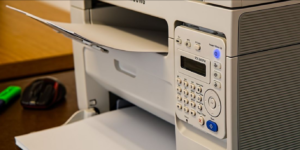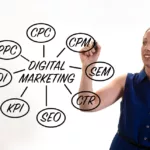It’s an ongoing joke now. The customer asks “Can you fax that to me?” and the associate says “No, because we’re in the 21st century.” Everyone laughs.
But the truth is that businesses are still faxing in 2019. Faxing has substantial benefits over getting documents and other files emailed. Looking at some of those benefits can help companies decide whether or not faxing is what should be located in their office.
Reliable
Faxing as a technology has existed for years. For a while, faxing was frustrating; it involved long rolls of shiny, heat transfer paper that were sometimes difficult to read. You couldn’t be sure that the person had gotten your fax, so you had to call and confirm that it had been received. But as faxing grew to be more popular, the technology became more reliable.
Some offices have dedicated fax machines, while others have faxing capabilities built into their copiers. Both the sender and the recipient can get confirmation that their fax has gone through and been received. And companies have learned to trust faxes. Documents can be faxed from one office, signed, and returned. Simple and straightforward.
Fast Transmission
Faxes are transmitted much more quickly now than they were in years past. This is in part due to how much faster printers work. Data is received quickly, and your printer is able to quickly translate the data into the printed material; pages arrive rapidly, and you can get exactly what you need. Faxes send quickly as well; there’s no need to baby-sit the machine and wait for documents to transmit.
For some companies, e-faxing is also an option. This is convenient for small businesses or companies that may not have need for a dedicated fax machine, but still need to fax from a computer from time to time. You can e-fax documents to a company’s fax machine so that they are received in the appropriate manner.
No Viruses
The transmission of viruses and malware is a huge problem in email attachments. Different types of files have different risks attached, but with faxing, there is no possibility for virus or malware transmission. By accepting documents through these methods, especially from individual customers and new vendors, companies open themselves to cyber-attacks. Businesses are particularly vulnerable because many users don’t understand the dangers of opening attachments from unknown parties, or even from friends or coworkers that don’t seem quite right.
When cybersecurity experts have looked at email opening trends, they have found that even workers educated about the dangers of email attachments will still open suspicious files if they are marked something like “Company salaries” or “Guess who got a raise??” Faxing eliminates these dangers by avoiding the attachment problem entirely.
Sensitive Information
For some companies or government offices that handle sensitive information, email isn’t permitted. This is because of the virus risk, but also because the possibility that information could be intercepted and copied between the sender and the recipient. Even if the recipient company has the best cybersecurity imaginable, it’s still possible that the sender could have malware on their end that could cause information breaches.
Familiarity
While much of the workforce is now made up of Millennials – remember that the oldest Millennials are now nearing their forties – there are still plenty of people who aren’t familiar with computer technology. Not all Millennials are digital natives, and some Gen X and Baby Boomer employees may simply not feel comfortable with the kind of tech that goes into sending documents in other ways.
Faxing, however, has been around long enough that it’s familiar to everyone. While you might have to show someone the details of your specific fax machine, the concept is approachable to all of your employees.
Archiving Documents
The most up to date fax machines include options to scan and archive documents as they arrive. This can be helpful for items like invoices, proposals, contracts, and much more. These archival features can make it possible for items to be accessed on the go. They also mean that even if a machine is out of paper or toner, it can continue to receive faxes until these supply issues are resolved. Modern machines will simply print out the logged faxes when it’s possible.
Although fax machines may seem dated to the untrained eye, they continue to serve an important function in the modern office. From protecting your company from cyberattacks by eliminating transmissions of malware containing files to archiving documents for easy reference off-site or later in time, fax machines are incredibly important.
Companies that have decided to phase out faxes in their offices should take a serious look at the benefits of fax machines and consider keeping this technology. Small companies that use co-working spaces should make sure that fax numbers are available. And customers shouldn’t mock companies that continue to use a fax machine; they are more private, more safe, and often more efficient than emailed documents.








